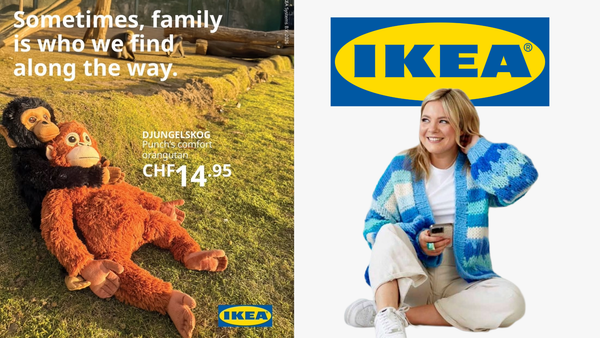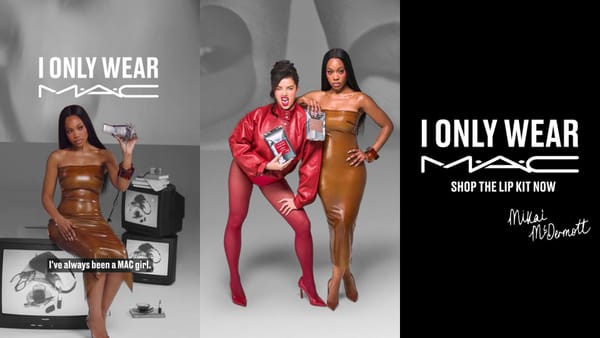How can brands and influencers get it right? And how can brand marketers see beyond their own unconscious biases to connect with creators already championing their own communities?
Using cause marketing for good
The new phenomenon labelled ‘cause marketing’, meaning actively tying your brand’s image to an important issue, is key to connecting with socially conscious millennial and gen-z consumers.
Brands are increasingly shining a light on their core values as part of their communication goals. Done well, brands can ensure, and maintain, relevance and influence. But if the efforts are deemed inauthentic, audiences are quick to call brands out. A general rule is: if it feels incongruent with their brand values, they should probably steer clear.
Get it right or be held accountable
Today’s generation of social media users both navigate and drive social channels as spaces of social awareness, accountability, and authenticity. Social media communities are a powerful force of accountability.
Accounts such as @dietprada are emblematic of the kind of accountability and transparency that is demanded from this generation of social media users, who will not hesitate to call out brands who appear tokenistic or do not pass the mic to those on the platform who are better equipped to advocate for specific social issues. Social media users don’t navigate their online spaces in a silo; they’re a community who hold brands up to standards of equality, inclusion, and originality, and are quick to identify missteps by major companies.
So how can brands get it right? Here are three ideas:
Embrace authenticity – the new currency of transparency
Authentic influencer marketing is no longer a nice-to-have strategy for a brand, but essential for any online marketing strategy that aims to build community, influence, and impact. Authenticity is even becoming law in certain countries, with new legislation in Norway coming into force in July that requires social media influencers to add a disclaimer to retouched images online.
There is a trend for content creators to celebrate authenticity in the content they themselves create, and call out those manipulating their posts. In the UK, fitness influencer @hayleymadiganfitness has established herself as a champion of authenticity, shining a light on the ways that influencers frequently manipulate their posts to look flawless. She specifically aligns herself with brands that will happily ‘show her cellulite’ in fitness images.
Identify the right advocates
Influencer marketing is changing with brands keen to reach influencers of all sizes. Consumers are as important as influencers and brands must nurture their online communities through the growing art of brand advocacy. But with more influencers of all sizes, how can you identify the right ones that really fit with your brand?
Based on a recent survey over 1,000 people were asked what they considered to be a true brand advocate, we found that it’s genuine customers e.g. people already using products and people passionate about the brand or who have expertise in their field. Social media users will also respond more positively to influencers who are selective with who they choose to work with, and those who provide full transparency regarding partnerships, and those who may prefer unpaid reviews.
Use data to address unconscious biases
Every brand marketer will inevitably come to a campaign with their own unconscious biases from their cultural and personal experiences. However, technology can help to broaden the lens and reach the right advocate for your brand and – importantly – the community you want to engage.
New solutions provide reliable, robust data insights and optimisation to make it easier for brands to design and implement campaigns as well as demonstrate their value and impact. Technology can uniquely identify influencers passionate about the topics of diversity, equality, and inclusivity, giving a voice to those marginalised in their communities and enabling brands to build authentic ties with communities they care about.
We work with a network of analysts to identify true brand advocates around the globe. Through a process of curation, it’s important to highlight quality advocate content based on strict editorial guidelines. This includes characteristics that signal originality, expertise, passion point and openness for collaborations, editorial integrity, and cultural relevance. This process is replicated using machine learning to discover rank and match influencers with similar qualities to individual brands.
This helps brands see beyond their own unconscious biases and connect to influencers already championing their own communities – an example of an inclusive, human-centric approach to technology building authentic communities.
Tokenistic marketing can’t be solved with a simple bit of green or rainbow washing, but brands can take positive steps towards identifying and working with the communities that are truly passionate about shared causes.








